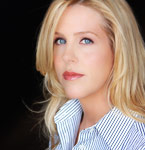Kristin Luck
When you hear the word “engagement”… what’s the first thing that comes to mind? If you’re friends with a bride to be, the word might fill you with dread (please … not one more light blue bridesmaid dress you’ll never wear again!). If you’re in a business development role, you may think of the prospective client you’re trying to land. If you work for a panel company, you’re likely thinking of the best ways to keep your panelists interested in taking surveys. I’ve signed on as a mentor for ESOMAR’S 2014 Young Researcher Award, and since then, “engagement” really just makes me think about our next new hire at Decipher. First, how I’m going to find them and then the bigger challenge … how I’m going to inspire them to be as engaged and as passionate about the research industry, as I am.
If you’re doing a lot of hiring these days, as we are at Decipher (over 70 in the last 8 months!), then you understand the challenge everyone faces in attracting new talent. It’s tough finding entry and mid-level talent, and even tougher getting them to stay in the field. Survey research jobs are predicted to have a faster than average growth rate in the coming years, with the US Bureau of Labor Statistics projecting a 32% increase in market research analysts between 2012 and 2022 and an 18% increase in the survey research field as a whole.
I graduated from University in 1996 with a degree in Journalism. Like most of you, I feel into market research by chance. I worked my way through school at a small social science research institute in Oregon, and after graduation, parlayed that into an entry level market research position at Lieberman Research Worldwide. I’d never heard of market research. Roughly 90% of folks I’ve met on my global travels, or while guest lecturing at universities, haven’t heard of market research either. Which begs the question…how does the next generation of researchers “find” us?
As an industry, we’re presented with four major challenges as we look to develop young talent:
- Awareness
- Education
- Making research meaningful
- Mentoring
Awareness
ESOMAR’S Young Researcher Award and the ARF’s Young Pro’s group are both working to illuminate the importance of young research talent in the industry. As a speaker at a Young Pro’s event last year, I can personally attest to the number of young researchers who are passionate about making a difference in our industry – they just need the opportunity to contribute. Danielle Todd, one of the finalists in ESOMAR’s 2013 Young Researcher Award, will be presenting her award winning work on the state of diversity in our industry at our London Women in Research event in May. Providing a platform that gives young researchers a voice is paramount to our evolution and I encourage you to get involved and support these important programs.
Education
Opportunities for formal education in market research are expanding globally. In the US alone, there are nearly 30 programs (both in classroom and online) that offer graduate degrees, certificates or certifications in market research. Program content varies but the educational institutions offering degrees have created coursework that gives students a deep dive into the fundamentals of market research and analysis. For example, the University of Connecticut Graduate Program in Survey Research provides online instruction in all aspects of the survey research process, from research design through analysis. Designed to meet the needs of survey research, market research and policy professionals, asynchronous course work allows working professionals to pursue graduate studies in their field while maintaining employment. Coursework includes fundamentals such as question wording, questionnaire design, statistics, project management, qualitative methods, and attitude formation; advanced courses such advanced questionnaire design, survey analysis and report writing; and application courses such as surveys in market research.
I had the pleasure of sitting on a Market Research Council panel discussion a few months ago about “How to Become a Rising Star in Market Research” with Jennifer Dineen, the Program Director of the Graduate Program in Survey Research at the University of Connecticut. Jennifer’s perspective is that as market research projects are becoming increasingly multi-modal and use a blend of traditional qualitative and quantitative techniques, employers are seeking researchers whose toolbox includes a diverse skill-set. “At UConn, we believe that researchers should have some training in all phases of the process in order to understand how their decisions, regardless of their role in a project, impact the ability of their entire team to get the client the necessary information. Too often an analyst cannot use the method he or she thinks is most appropriate or the client services lead can’t answer a question because of a decision someone else made earlier in the process (their needs weren’t considered in instrumentation, for example). In most organisations a single person doesn’t make every decision in this process. But if everyone working in the process has an understanding of what is happening during each phase they can make better decisions – and better might mean a closer fit with client needs or decisions that give you more flexibility to adjust.”
Making research meaningful
Martin Sorrell recently spoke at the annual Market Research Society (MRS) conference on the challenges of obtaining top millennial talent- a group that is typically attracted to firms that are perceived as creative, flexible and innovative….clearly traits we haven’t prioritised as an industry.
Our biggest hurdle in recruiting the next generation is creating meaning. Young people are less motivated by climbing the career ladder or acquiring stock options. The majority of millennials have already changed careers and/or employers and over 90% expect to stay in a job for fewer than three years. Why? Millennials refuse to settle because they know how great an individuals’ impact can be when they find work they truly care about.
For employers, creating meaningful work means providing opportunities for individuals to share their unique talents, make an impact in the lives of others, and emphasising quality of life (work/life balance) … which has been a particular challenge in our industry. With the advent of smartphones and other connected devices, we’ve moved to a 24:7 work environment that doesn’t allow any true “downtime.” In fact, as a recent New York Times article reported, scientists are finding that this constant stream of digital input is causing people to forfeit downtime that could allow them to better learn and remember information, or come up with new ideas. If we are going to attract and retain the researchers of tomorrow, companies need to make a shift to equalise the balance between personal life and work.
Mentoring
Lastly, let’s not downplay the important role each of us can play in the future of our industry. Marie Wilson, Founder of the White House Project, famously said “you can’t be what you can’t see”. Ask yourself, how are you influencing and guiding the next generation of researchers to aspire toward leadership in their areas of expertise?
In 2013, WIRe launched the industry’s first formal mentoring program, pairing senior level researchers with 10 or more years of experience with women in the early stages of their career. We offer one to one mentoring opportunities in Los Angeles, New York, Chicago and London as well as an “Office Hours” online program where a monthly industry expert answers questions posted about career and personal development (men are welcome to participate as well!). Phyllis McFarlane, MD of GfK/NOP and Rebecca Brooks, Partner & Co-Founder of Dialogue hosted “Office Hours” in March and April and we are thrilled to have Eric Salama, CEO of Kantar, as our host in May. These forums provide a much needed outlet for young researchers who are still trying to determine their path in the industry.
But true mentoring is more than just answering occasional questions or providing ad hoc help. It is about an ongoing relationship of learning, dialogue, and challenge. How can you contribute?
- Build a pipeline through advocacy and mentorship to help coach and promote young researchers in your organization.
- Make a personal pledge to take responsibility for empowering young researchers around you and challenging them to think big and bold when setting goals for their future.
- Lead by example.
- Take a younger or less experienced colleague to lunch. Begin a dialogue and share your story, experiences and wisdom.
- Refer young researchers for new assignments and promote their involvement in the industry.
We can all impact the future of our industry by creating opportunities for the next generation. Let this serve as your call to action.



